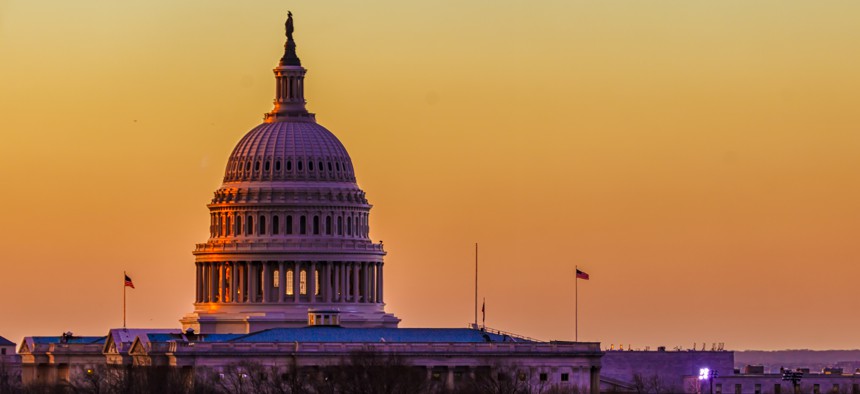U.S. House’s Intergovernmental Task Force Set to Reconvene

The U.S. Capitol in Washington, D.C. Shutterstock.com / Chris Parypa Photography
Here’s the latest on the panel, which is exploring the federal relationship with state, local and tribal governments.
WASHINGTON — A recently formed U.S. House task force on intergovernmental affairs is planning to hold its next meeting later this month, where lawmakers will hear from academics who are experts on federalism.
The hearing is currently scheduled for Sept. 28. One of the people expected to provide testimony is Yale Law School Dean Heather Gerken, who is a founder of what’s known as the “nationalist school” of federalism and a leading scholar on constitutional law.
U.S. Rep. Rob Bishop, a Utah Republican, chairs the task force, which House Speaker Paul Ryan and House Minority Leader Nancy Pelosi launched in May. The panel held its first meeting in June. It’s formally known as the Speaker’s Task Force on Intergovernmental Affairs.
Looking ahead, the task force plans to hold a hearing about once every other month, according to Adam Stewart, the lead congressional staffer for the panel. A tentative plan is for a group of state legislators to offer testimony at a November meeting.
Broadly, the task force’s work is focused on examining the relationship the federal government has with states, local governments and tribes, and whether it needs to be somehow realigned.
“The purpose of these hearings though, of course, is to find out what is the current status and where we could or should go,” Stewart said. He added: “We're asking the states and local governments and tribes to come to us and tell us where they're having issues.”
An advisory council that includes state and local government groups is offering guidance to the task force. The advisory panel includes organizations like the National League of Cities, National Association of Counties and National Governors Association, among others.
The National Association of State Treasurers and the Western Governors’ Association are two recent additions to the advisory group.
Bishop has stressed that he does not want the task force to get bogged down in policy battles, and that he’s more interested in concentrating on procedural issues that could afford states and local governments more input in decision-making processes.
Stewart said Friday this could possibly involve looking at the application and definition of provisions in certain federal laws that call for consultation or coordination between the federal government and states, localities or tribes.
But the task force is still in the early stages of its work and the directions it might head are still not entirely clear.
Stewart said the groups on the advisory council have stayed engaged so far in the process. “We're really grateful for that,” he added, “and excited to keep working with them.”
Bill Lucia is a Senior Reporter for Government Executive’s Route Fifty and is based in Washington, D.C.
NEXT STORY: 2017’s Destructive Wildfire Season Sets New Record






